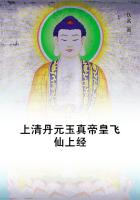That was his law which for many generations had been followed and respected by his class with the tacit assent of the nation. According to this law, then, he had done no wrong. But now the victim by the altar, who did not know that already he was bound upon the altar, preached a new and a very different doctrine under which, were it to be believed, he, Hokosa, was one of the worst of sinners. The matter, then, resolved itself to this: which of these two rules of life was the right rule? Which of them should a man follow to satisfy his conscience and to secure his abiding welfare? Apart from the motives that swayed him, as a mere matter of ethics, this problem interested Hokosa not a little, and he went homewards determined to solve it if he might. That could be done in one way only--by a close examination of both systems. The first he knew well; he had practised it for nearly forty years. Of the second he had but an inkling. Also, if he would learn more of it he must make haste, seeing that its exponent in some short while would cease to be in a position to set it out.
"I trust that you will come again," said Owen to Hokosa as they left the chapel.
"Yes, indeed, Messenger," answered the wizard; "I will come every day, and if you permit it, I will attend your private teachings also, for I accept nothing without examination, and I greatly desire to study this new doctrine of yours, root and flower and fruit."
*****
On the morrow Noma started upon her journey. As the matrons who accompanied her gave out with a somewhat suspicious persistency, its ostensible object was to visit the Mount of Purification, and there by fastings and solitude to purge herself of the sin of having given birth to a stillborn child. For amongst savage peoples such an accident is apt to be looked upon as little short of a crime, or, at the least, as indicating that the woman concerned is the object of the indignation of spirits who need to be appeased. To this Mount, Noma went, and there performed the customary rites.
"Little wonder," she thought to herself, "that the spirits were angry with her, seeing that yonder in the burying-ground of kings she had dared to break in upon their rest."
From the Place of Purification she travelled on ten days' journey with her companions till they reached the mountain fastness where Hafela had established himself. The town and its surroundings were of extraordinary strength, and so well guarded that it was only after considerable difficulty and delay that the women were admitted.
Hearing of her arrival and that she had words for him, Hafela sent for Noma at once, receiving her by night and alone in his principal hut.
She came and stood before him, and he looked at her beauty with admiring eyes, for he could not forget the woman whom the cunning of Hokosa had forced him to put away.
"Whence come you, pretty one?" he asked, "and wherefore come you? Are you weary of your husband, that you fly back to me? If so, you are welcome indeed; for know, Noma, that I still love you."
"Ay, Prince, I am weary of my husband sure enough; but I do not fly to you, for he holds me fast to him with bonds that you cannot understand, and fast to him while he lives I must remain."
"What hinders, Noma, that having got you here I should keep you here?
The cunning and magic of Hokosa may be great, but they will need to be still greater to win you from my arms."
"This hinders, Prince, that you are playing for a higher stake than that of a woman's love, and if you deal thus by me and my husband, then of a surety you will lose the game."















